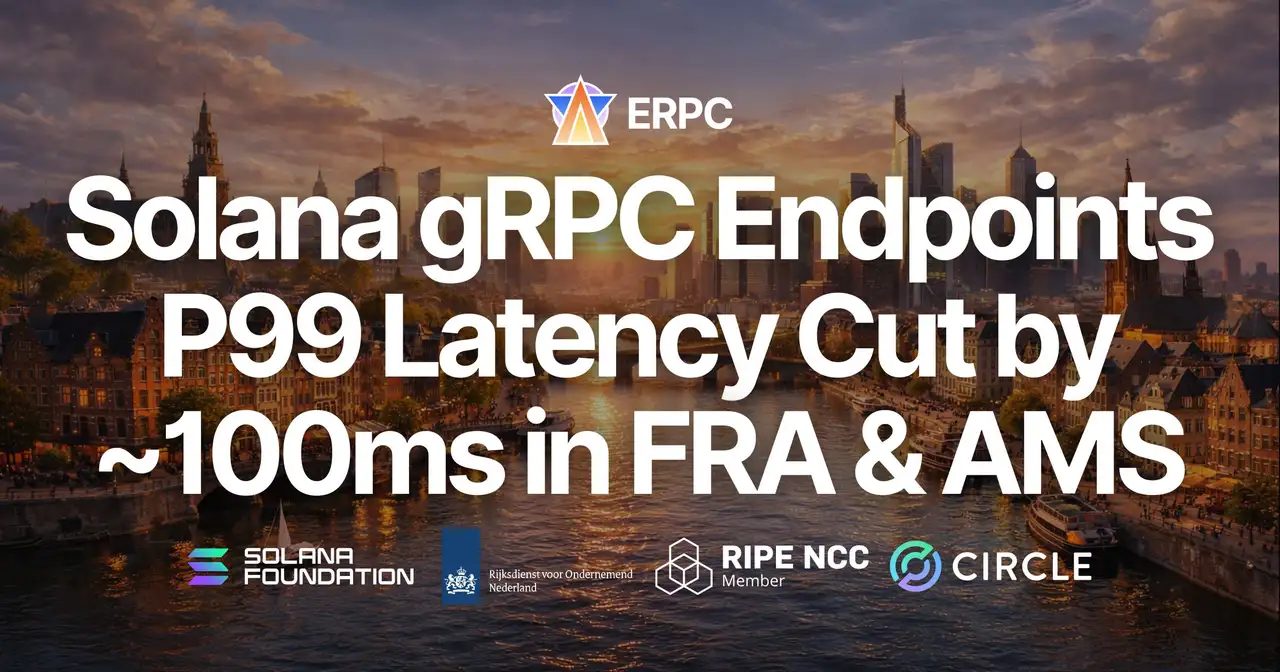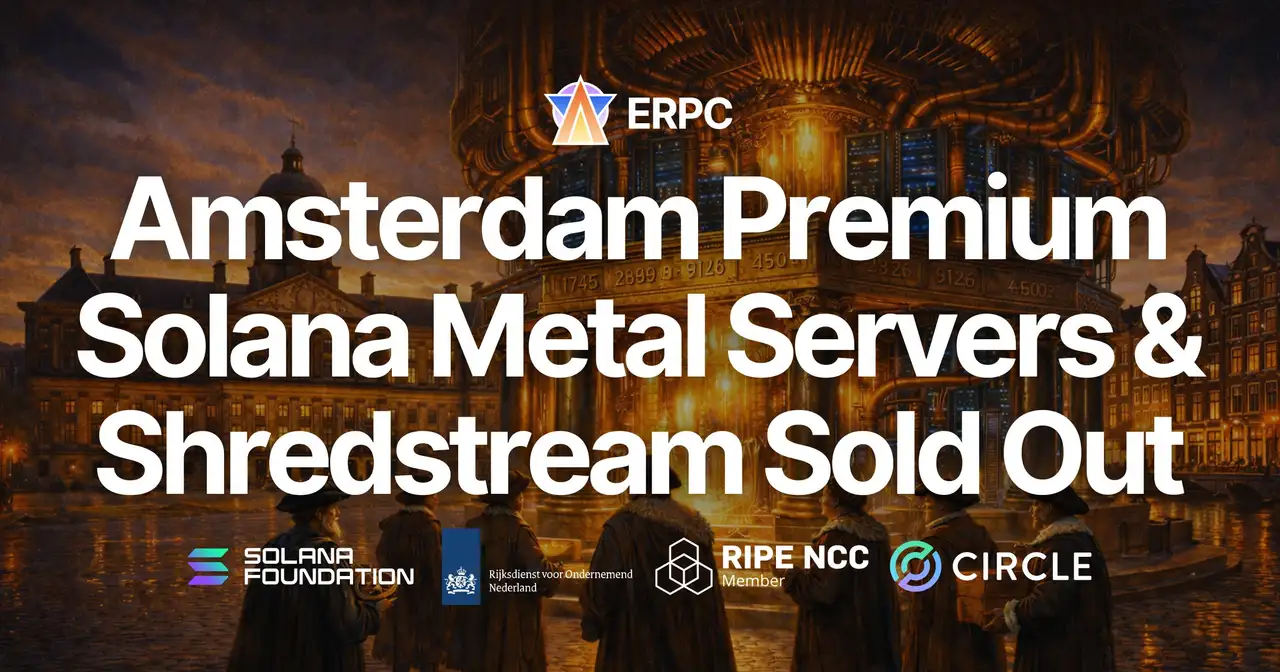Open-source SLV reduces Solana validator operation costs, now fully compatible with the required Testnet Rollback & Restart maintenance
Open-source SLV reduces Solana validator operation costs, now fully compatible with the required Testnet Rollback & Restart maintenance
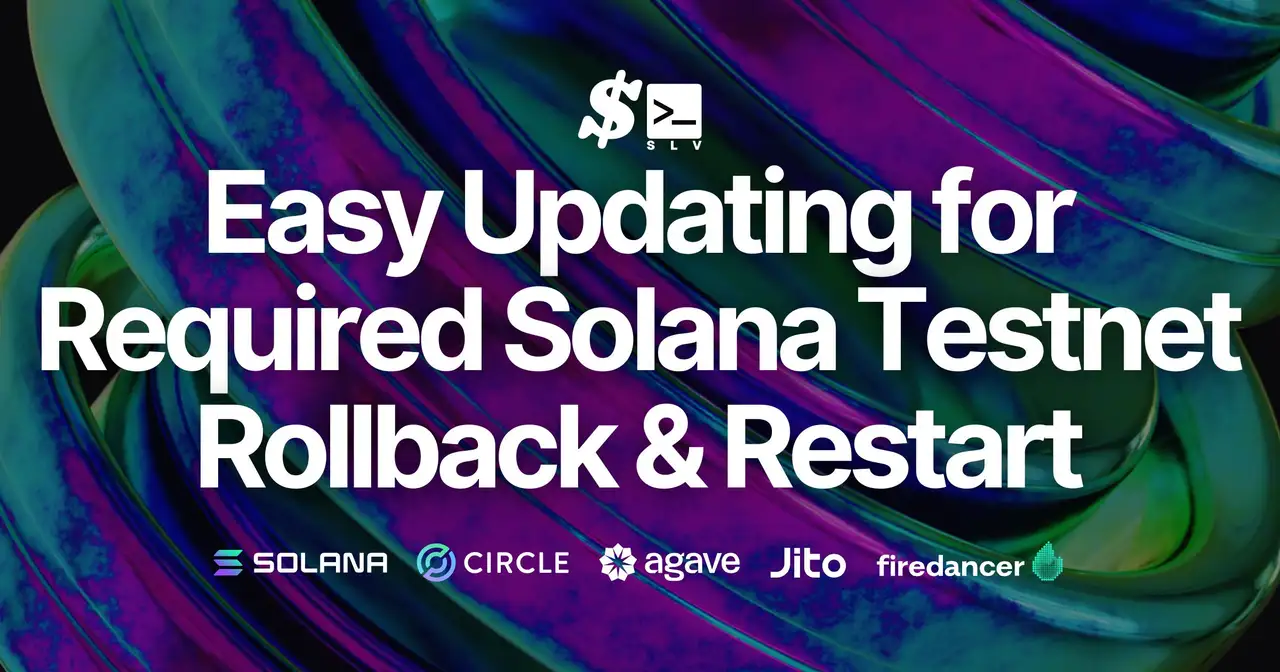
ELSOUL LABO B.V. (Headquarters: Amsterdam, the Netherlands, CEO: Fumitake Kawasaki) and Validators DAO announce that the open-source validator infrastructure platform "SLV" is now fully compatible with the Testnet Rollback & Restart maintenance officially announced by Solana on October 1, 2025.
Background of the Solana Testnet Rollback & Restart
This maintenance was required to ensure the stable operation of the Solana Testnet, and validators were asked to restart their nodes following the steps described in the official guide. The official procedure involved a large number of steps, resulting in a complex maintenance process that required significant time and learning costs for operators.
For validators participating in the Solana Foundation Delegation Program (SFDP), it is mandatory to run the same clients on the testnet as on the mainnet. Responding to such maintenance correctly is also a condition to continue receiving stake support. Therefore, stable maintenance operations on the testnet have become an essential requirement for validators.
Solana Official Guide (2025 10 01 Testnet rollback and restart): https://github.com/anza-xyz/agave/wiki/2025-10-01-Testnet-rollback-and-restart
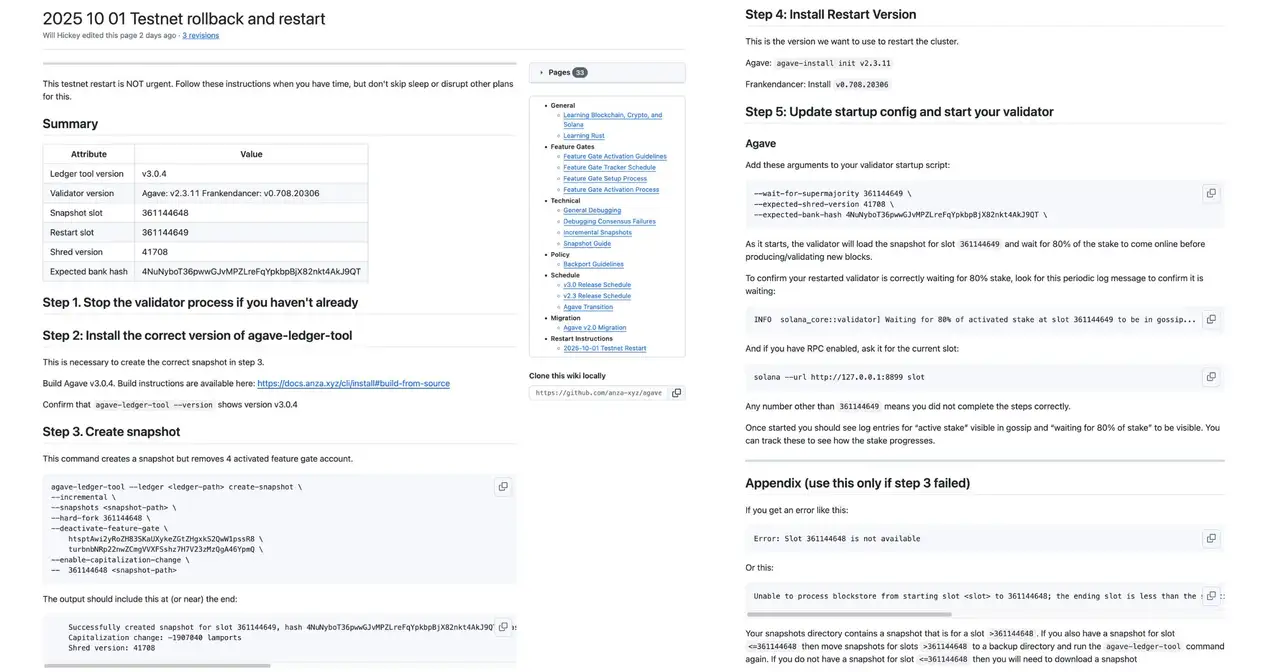
Full automation support with SLV v0.9.406
With the latest update, SLV v0.9.406 now fully supports this Testnet Rollback & Restart. What is described as a complex maintenance task with a large number of steps in the official guide can now be completed with only a few commands. Operators simply execute the commands in sequence, and the entire process—including upgrade, script update, version update, node stop, and restart—is automated, significantly reducing both time and learning costs.
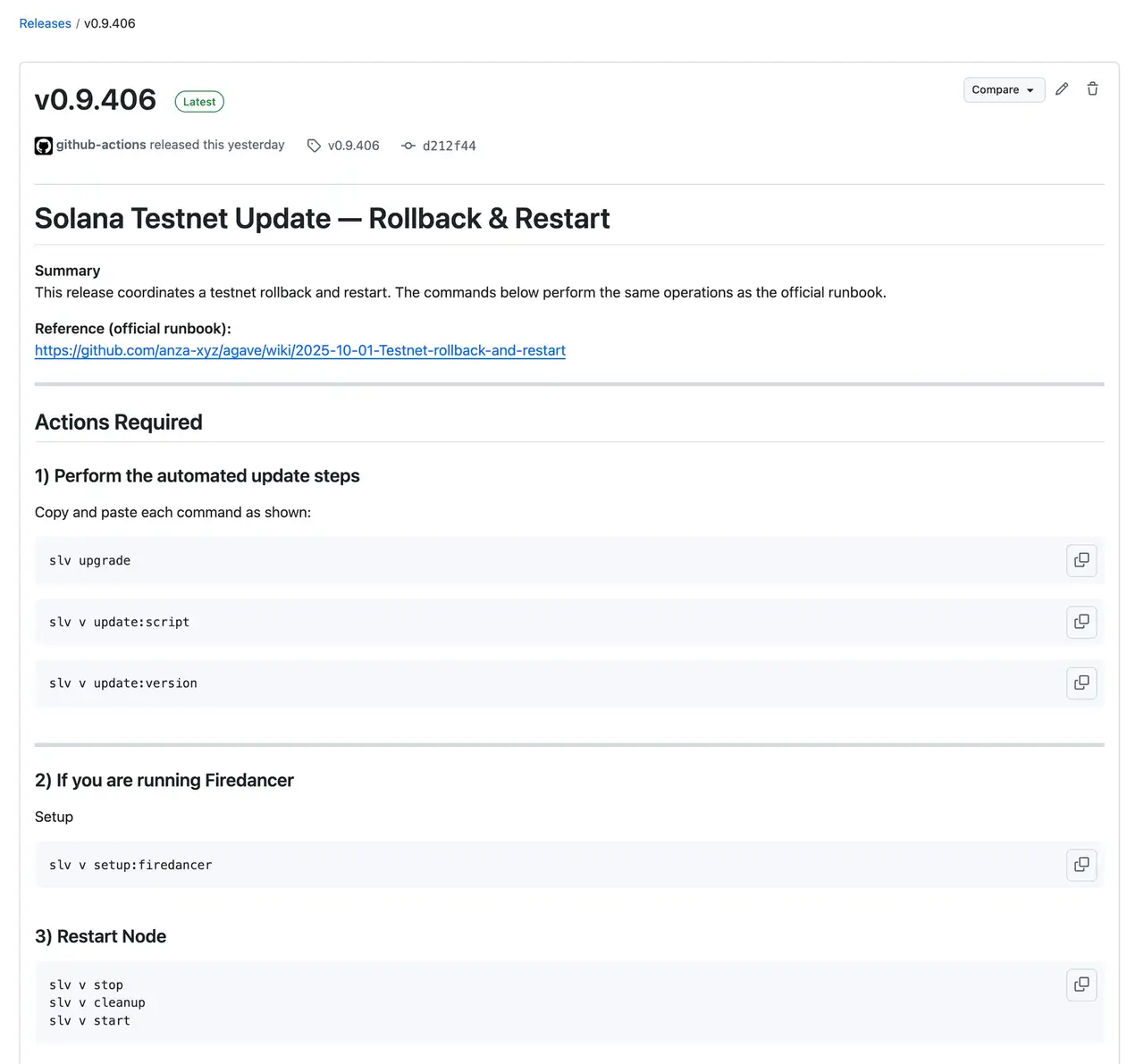
This drastically simplifies the entire validator workflow, from initial setup to ongoing maintenance, eliminating the need for manual, error-prone operations. By continuing to make every update as simple as possible, SLV enhances both the reliability and usability of Solana validator operations.
SLV Release Notes v0.9.406: https://github.com/ValidatorsDAO/slv/releases/tag/v0.9.406
Addressing validator decline and centralization risks
SLV aims not only at operational efficiency but also at improving the overall stability and decentralization of the Solana network. By simplifying maintenance, the burden on operators is reduced, helping to prevent people from abandoning validator operations due to time or resource constraints. In addition, with support for one-command zero-downtime migrations, operators can maintain high-quality default operations while ensuring network decentralization.
This approach provides an environment where validators can operate with confidence over the long term, mitigating centralization risks and contributing to a stronger and more resilient Solana ecosystem.
Challenges ERPC and Validators DAO aim to solve
- Transaction failures and latency fluctuations that occur in RPC environments
- Performance limitations imposed by many infrastructure providers
- The significant impact of network distance on communication quality
- The difficulty for smaller projects to access high-quality infrastructure
Through the development of the open-source Solana NFT card game project Epics DAO, we faced the challenge that high-performance and low-latency Solana environments were not easily available. We built our own platform to address this and now provide ERPC and SLV based on that expertise.
Applications in the financial sector are especially mission-critical, where delays or errors directly impact user experience. In Solana development, where distributed validators and Web3-specific mechanisms overlap, it has been difficult to maintain full visibility, and many projects have suffered from latency and instability.
We provide the required high-performance development infrastructure, contributing to improving both the developer and user experience across the Solana ecosystem. ERPC and SLV are positioned as essential components of that effort.
- ERPC official site: https://erpc.global/en
- SLV official site: https://slv.dev/en
- elSOL official site: https://elsol.app/en
- Epics DAO official site: https://epics.dev/en
- Validators DAO official Discord: https://discord.gg/C7ZQSrCkYR


